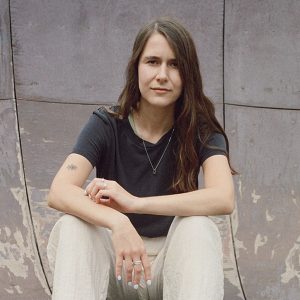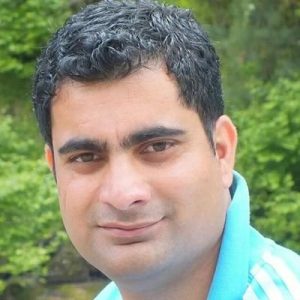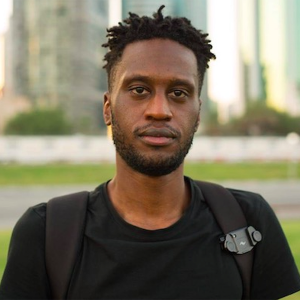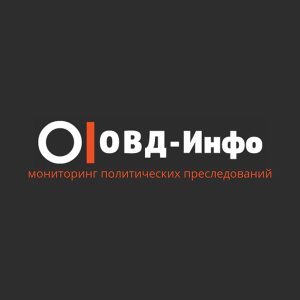10 Oct 2022 | News and features, Volume 51.03 Autumn 2022, Volume 51.03 Autumn 2022 Extras
The World Cup is just around the corner, but feelings are mixed. There are many – including diehard football fans – who are saying they won’t watch it due to Qatar’s treatment of migrant workers and its dire human rights record. This isn’t the first time football and free expression has collided. But just how common is the intersection between the so-called beautiful game and human rights? Take our quiz below and find out.
And don’t forget you can read more on this topic in our Autumn issue of Index.
[streamquiz id=”8″][/vc_column_text][/vc_column][/vc_row]
5 Oct 2022 | Afghanistan, Africa, Americas, Asia and Pacific, Brazil, Bulgaria, China, Europe and Central Asia, India, Israel, Kenya, Magazine, Magazine Contents, Middle East and North Africa, North Korea, Palestine, Poland, Qatar, Romania, Saudi Arabia, United States, Volume 51.03 Autumn 2022, Volume 51.03 Autumn 2022 Extras
The autumn issue of Index takes as its central theme the FIFA World Cup that will take place in Qatar in November and December 2022.
A country where human rights are constantly under threat, Qatar is under the spotlight and many are calling for a boycott of the tournament.
Index spoke to journalists, human rights activists and philosophers for the latest issue to understand their view on the tangled relationship between football and human rights. Is football really the beautiful game?
Upfront
The Qatar conundrum, by Jemimah Steinfeld: The World Cup is throwing up questions.
The Index, by Mark Frary: The latest in the world of freedom of expression, with internet shutdowns and Salman Rushdie’s attack in the spotlight. Plus George M Johnson on being banned.
Features
An unholy war on speech, by Sarah Myers: A woman sits on death row in Pakistan. Her crime? Saying she was a prophet.
Perfecting the art of oppression, by Martha Otwinowski: Poland’s art scene is the latest victim of nasty politics.
Poland’s redemption songs, by Martin Bright: In anti-apartheid solidarity, reggae rode with revolution in Europe.
Fighting back against vendetta politics, by Hanan Zaffar and Hamaad Habibullah: In India, tackling fake news can land you in a cell.
The mafia state that is putty in Putin’s hands, by Mark Seacombe: The truth behind the spread of pro-Russian propaganda in Bulgaria.
Bodies of evidence, by Sarah Sands: A new frontier of journalism with echoes of a crime scene investigator.
Chasing after rights, by Ben Rogers: The activist on being followed by Chinese police.
The double closet, by Flo Marks: Exploring the rampant biphobia that pushes many to silence their sexuality.
Is there a (real) doctor in the house? By John Lloyd: One journalist uncovers the secret of Romania’s doctored doctorates.
The mice hear the words of the night, by Jihyun Park: A schooling in free expression, where the classroom is North Korea.
The most dangerous man in Guantanamo, by Katie Dancey-Downs: After years in Guantanamo, a journalist dedicates himself to protecting others.
America’s coolest members club, by Olivia Sklenka: Meet the people fighting against the surge in book bans.
Special report: The beautiful game?
Victim of its own success? By Simon Barnes: Blame the populists, not the game.
Stadiums built on suffering, by Abdullah Al-Maliki: Underneath the suds of Qatar’s sportswashing, fear and terror remain.
Football’s leaving home, by Katie Dancey-Downs: Khalida Popal put women on the pitch in Afghanistan, before leading their evacuation.
Exposing Saudi’s nasty tactics, by Adam Crafton: A sports journalist is forced into defence after tackling Saudi Arabia’s homophobia.
It’s foul play in Kashmir, by Bilal Ahmad Pandow: Protest and politically motivated matches are entwined in Kashmir’s football history.
How ‘industrial football’ was used to silence protests, by Kaya Genç: Political football: how to bend it like Erdoğan.
Xi’s real China dream, by Jonathan Sullivan: While freedoms are squeezed, China’s leader has a World Cup-sized dream.
Tackling Israel’s thorny politics, by Daniella Peled: Can Palestinians de-facto national team carve out a space for free expression?
The stench of white elephants, by Jamil Chade: Brazil’s World Cup swung open Pandora’s Box.
The real game is politics, by Issa Sikiti da Silva: Is politics welcome on the pitch in Kenya?
Comment
Refereeing rights, by Julian Baggini: Why we shouldn’t expect footballers to hand out human rights red cards.
The other half, by Permi Jhooti: The real-life inspiration behind Bend it like Beckham holds up a mirror to her experience.
We don’t like it – no one cares, by Mark Glanville: English football has moved away from listening to its fans argues this Millwall supporter.
Much ado about critics, by Lyn Gardner: A theatre objects to an offensive Legally Blonde review.
On reputation laundering, by Ruth Smeeth: Beware those who want to control their own narrative.
Culture
The soul of Sudan, by Stella Gaitano and Katie Dancey-Downs: What does it mean for deep-running connections when you’re forced to leave? Censored writer Stella Gaitano introduces a new translation of her work.
Moving the goalposts, by Kaya Genç and Guilherme Osinski: Football and politics are a match made in Turkey. Kaya Genç fictionalises an unforgettable game.
Away from the satanic, by Malise Ruthven: A leading expert on Salman Rushdie writes about an emerging liberalism in Islamic discourse.
16 May 2022 | Awards, Fellowship, Fellowship 2022, Kenya, Qatar, Russia, Venezuela
 Sonya Groysman is a Russian journalist and podcaster. Despite being labelled as a ‘foreign agent’ by Russian authorities she has continued to report on human rights issues and censorship in Russia.
Sonya Groysman is a Russian journalist and podcaster. Despite being labelled as a ‘foreign agent’ by Russian authorities she has continued to report on human rights issues and censorship in Russia.
Sonya Groysman was working for the investigative outlet Proekt in 2020 when the site was labelled as ‘undesirable’ by Russian authorities. Soon after, Groysman and many of her former colleagues were labelled as ‘foreign agents’. Groysman is now required to attach a disclaimer to all published work – including social media posts: “THIS NEWS MEDIA/MATERIAL WAS CREATED AND/OR DISSEMINATED BY A FOREIGN MASS MEDIA PERFORMING THE FUNCTIONS OF A FOREIGN AGENT AND/OR A RUSSIAN LEGAL ENTITY PERFORMING THE FUNCTIONS OF A FOREIGN AGENT.”
Facing significant challenges working as a journalist with the ‘foreign agent’ label, Groysman and her colleague Olga Churakova set up their podcast titled “Hi, You’re a Foreign Agent” in 2021. The podcast combines dark humour (how does one’s boyfriend or grandmother react to having a loved one named “foreign agent”? does one have to identify her “foreign agent” status on Tinder?) with personal stories and journalism.
Groysman has continued to face legal issues related to her reporting. In August 2021 she was arrested in front of the F.S.B building in Moscow for participating in a peaceful protest in support of independent media. She was released soon after.
Groysman has managed to maintain an active career as a journalist despite the ‘foreign agent’ label. Days before the invasion, Groysman was reporting from the Russian/Ukrainian border for the independent TV station TV Rain. Like most other independent news outlets in Russia, TV Rain was shut down by the authorities for allegedly spreading misinformation about the war. Fearing legal persecution as an independent journalist, Groysman decided to flee to Turkey. She continues to produce her podcast and report on human rights issues in Russia from abroad.
 Bilal Hussain is a journalist based in Srinagar in Kashmir. He focuses his reporting on freedom of expression issues.
Bilal Hussain is a journalist based in Srinagar in Kashmir. He focuses his reporting on freedom of expression issues.
Despite internet shut-downs and a day-to-day fear of persecution and censorship, Hussain continues to report on the conditions in Kashmir. He has been particularly concerned by the increasing censorship as a consequence of the Covid-19 pandemic.
In February 2022, the Kashmir Press Club was shut down by authorities. The independent body had done important work to offer legal support to journalists and to establish a sense of community among Kashmiri journalists. Hussain views this as another important blow to media freedom and free expression in Kashmir. Hussain has witnessed colleagues being imprisoned for doing their job and reporting on the conflict in Kashmir. Despite the threats, he continues to report on the situation and fight for free expression through independent news publications and social media.
Recent developments in Kashmir severely limit press freedom. Reflecting on this, Hussain says: “There have been many cases where journalists have been threatened with UAPA [Unlawful Activities (Prevention) Act]. These actions hamper the work of journalists and stop them from discharging their normal duties.”
Hussain is a regular contributor to Voice of America News and NIKKEI Asia among other publications. Through his reporting, Bilal brings international attention to the ongoing conflict and media rights situation in Kashmir.
 Huang Xueqin is an activist and journalist who has worked with several domestic Chinese media outlets. She has reported extensively on the MeToo movement in China.
Huang Xueqin is an activist and journalist who has worked with several domestic Chinese media outlets. She has reported extensively on the MeToo movement in China.
Huang Xueqin played a significant role in covering the MeToo movement. In 2017, she surveyed hundreds of female journalists across 15 provinces in China on their experience of workplace sexual harassment. She published her findings in a report in March 2018. She also assisted Luo Xixi, one victim of sexual harassment, to publicly submit a complaint against her professor. Her work sparked national discussions on sexual harrassment on campuses.
Huang has worked to promote women’s rights, and to document and expose sexual harassment against women and girls. Unfortunately, she has faced legal challenges because of her work as an activist and journalist. She was detained between October 2019 and January 2020 and charged with “picking quarrels and provoking trouble” after writing about mass protests in Hong Kong.
On 19 September 2021, Huang disappeared and stopped responding to phone calls from family and friends. Two months later, in November, it was confirmed that she had been detained along with labour activist Wang Jianbing and charged with “inciting subversion of state power”. She was due to travel to the UK to study development studies at the University of Sussex after receiving a Chevening Scholarship. She remains in detention and is now held in the No. 1 Detention Centre in Guangzhou.
16 May 2022 | Awards, Fellowship, Fellowship 2022, Kenya, Qatar, Russia, Venezuela
 Venezuela Inteligente (VE inteligente) is a non-profit organisation which works to empower civil society and media organisations in Venezuela. They fight for freedom of expression and civic engagement online and offline.
Venezuela Inteligente (VE inteligente) is a non-profit organisation which works to empower civil society and media organisations in Venezuela. They fight for freedom of expression and civic engagement online and offline.
The situation for democratic institutions in Venezuela has deteriorated dramatically in the last few years with harsh crackdowns on independent media and political dissent. In response, activist Andres Azpurua established VE Inteligente to investigate and monitor internet censorship in Venezuela. VE Inteligente seeks to increase civic engagement and access to reliable information. They monitor media freedoms online and provide individuals and civil organisations with the tools needed to navigate online spaces safely. VE Inteligente has provided reports on internet censorship and other online threats in Venezuela to UN bodies and has collaborated with election observation missions to the country.
Through various workstreams, VE Inteligente aims to protect civic rights and freedom of expression online. Their watchdog project VE sin filtro (Venezuela without a filter) monitors online censorship and surveillance and their campaign ‘Como Votar?’ (How to vote) offers step-by-step instructions on voting processes and voters rights. VE Inteligente also creates tools, tutorials, and training on how to avoid censorship and how to communicate securely online.
VE Inteligente have recorded that the media landscape in Venezuela is increasingly restrictive. 40 news websites are currently blocked in Venezuela and misinformation is prevalent. VE Inteligente hopes to mitigate the restrictions and help encourage free expression and media freedom in Venezuela.
 Malcolm Bidali is a labour rights defender and blogger from Kenya. In 2021, Bidali was arrested after writing about the realities of being an immigrant worker in Qatar.
Malcolm Bidali is a labour rights defender and blogger from Kenya. In 2021, Bidali was arrested after writing about the realities of being an immigrant worker in Qatar.
Malcolm was working as a security guard in Qatar and grew frustrated with poor living and working conditions. In order to speak out about the situation, Malcolm reached out to Migrant-Rights.org and began writing for them about his experiences under the pen-name Noah. He also began his own blog and social media accounts with the handle ‘Noah articulates’. He wanted to document and expose the exploitation and human rights violations migrant workers are subjected to in Qatar.
Malcolm was writing anonymously, and he had to be very careful about revealing information about his online activity to friends, family, or colleagues. In March 2021 he posted a blog post discussing Her Highness Sheikha Moza bint Nasser’s complicity in the mistreatment of migrant workers working on a particular project that she frequented. Soon after, he was detained. Malcolm was denied access to a lawyer and spent 28 days in solitary confinement. He was finally released after three months in detention. He was forced to pay a fine and asked to leave Qatar. He fears that he will be detained again if he ever returns to Qatar.
After being released, Malcolm returned to Kenya where he continues to advocate for migrant rights. He has worked with Amnesty Kenya as a trainee and consultant and he hopes to set up an NGO run by and for former migrant workers in the Gulf countries
Malcolm compares activism to an extreme sport – there are risks involved, but it gives him purpose. He feels compelled to speak up on behalf of those who are silenced.
 OVD-Info is an independent human rights media project documenting political persecution in Russia. With the help of a hotline, they collect information about detentions at public rallies and other cases of political pressure, publish news and coordinate legal assistance to detainees.
OVD-Info is an independent human rights media project documenting political persecution in Russia. With the help of a hotline, they collect information about detentions at public rallies and other cases of political pressure, publish news and coordinate legal assistance to detainees.
The organisation was set up in 2011 to document arrests during the widespread anti-fraud protests. Initially, groups of journalists and specialists collected and published information about the arrests on social media. As the organisation grew and became more structured they eventually set up a website. The organisation has now evolved to offer legal guidance and support to people arrested at peaceful protests in Russia.
Over the last year, censorship has increased in Russia with many media sites blocked. In September 2021, OVD-Info was labelled as a ‘foreign agent’ by Russian authorities. This means that the organisation must add a disclaimer to any work they publish: “THIS NEWS MEDIA/MATERIAL WAS CREATED AND/OR DISSEMINATED BY A FOREIGN MASS MEDIA PERFORMING THE FUNCTIONS OF A FOREIGN AGENT AND/OR A RUSSIAN LEGAL ENTITY PERFORMING THE FUNCTIONS OF A FOREIGN AGENT.” Their website was later blocked by Russian authorities because they claimed that news about detained people glorified terrorism and extremism.
During the ongoing war in Ukraine and associated anti-war protests in Russia, OVD-Info’s work is more important than ever. Within the first 10 days of the war, OVD-Info registered more than 13,000 arrests at anti-war protests in Russia. In March 2022, Marina Ovsyannikova interrupted the Russian state Channel One while holding a sign saying “Stop the war. No to war.” Following her on-screen protest, OVD-Info released a pre-recorded video by Ovsyannikova where she explained her motivations.
Despite a highly unpredictable situation and persistent censorship, OVD-Info continue to support detained and persecuted protesters in Russia.
 Sonya Groysman is a Russian journalist and podcaster. Despite being labelled as a ‘foreign agent’ by Russian authorities she has continued to report on human rights issues and censorship in Russia.
Sonya Groysman is a Russian journalist and podcaster. Despite being labelled as a ‘foreign agent’ by Russian authorities she has continued to report on human rights issues and censorship in Russia. Bilal Hussain is a journalist based in Srinagar in Kashmir. He focuses his reporting on freedom of expression issues.
Bilal Hussain is a journalist based in Srinagar in Kashmir. He focuses his reporting on freedom of expression issues. Huang Xueqin is an activist and journalist who has worked with several domestic Chinese media outlets. She has reported extensively on the MeToo movement in China.
Huang Xueqin is an activist and journalist who has worked with several domestic Chinese media outlets. She has reported extensively on the MeToo movement in China. Venezuela Inteligente (VE inteligente) is a non-profit organisation which works to empower civil society and media organisations in Venezuela. They fight for freedom of expression and civic engagement online and offline.
Venezuela Inteligente (VE inteligente) is a non-profit organisation which works to empower civil society and media organisations in Venezuela. They fight for freedom of expression and civic engagement online and offline. Malcolm Bidali is a labour rights defender and blogger from Kenya. In 2021, Bidali was arrested after writing about the realities of being an immigrant worker in Qatar.
Malcolm Bidali is a labour rights defender and blogger from Kenya. In 2021, Bidali was arrested after writing about the realities of being an immigrant worker in Qatar. OVD-Info is an independent human rights media project documenting political persecution in Russia. With the help of a hotline, they collect information about detentions at public rallies and other cases of political pressure, publish news and coordinate legal assistance to detainees.
OVD-Info is an independent human rights media project documenting political persecution in Russia. With the help of a hotline, they collect information about detentions at public rallies and other cases of political pressure, publish news and coordinate legal assistance to detainees.